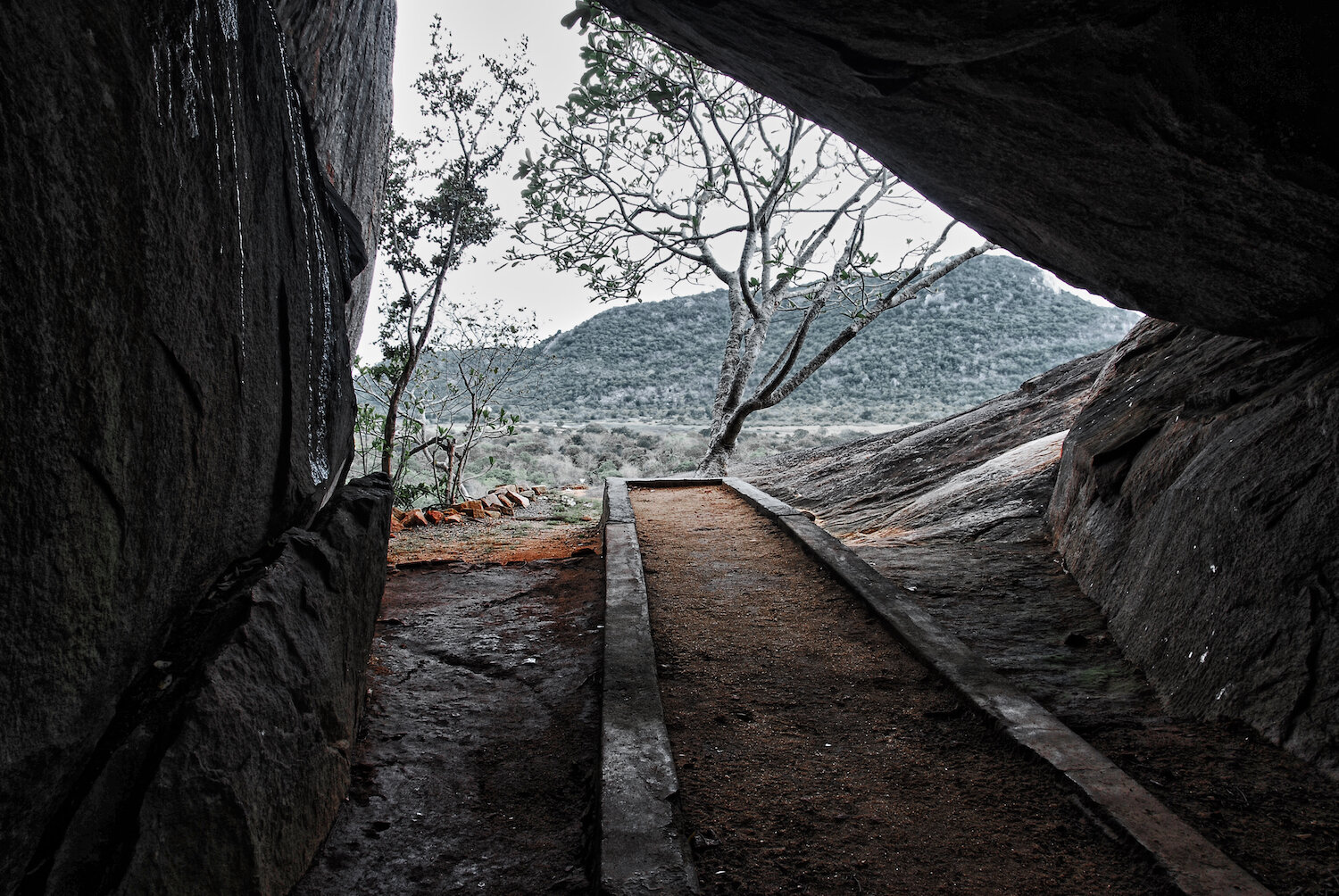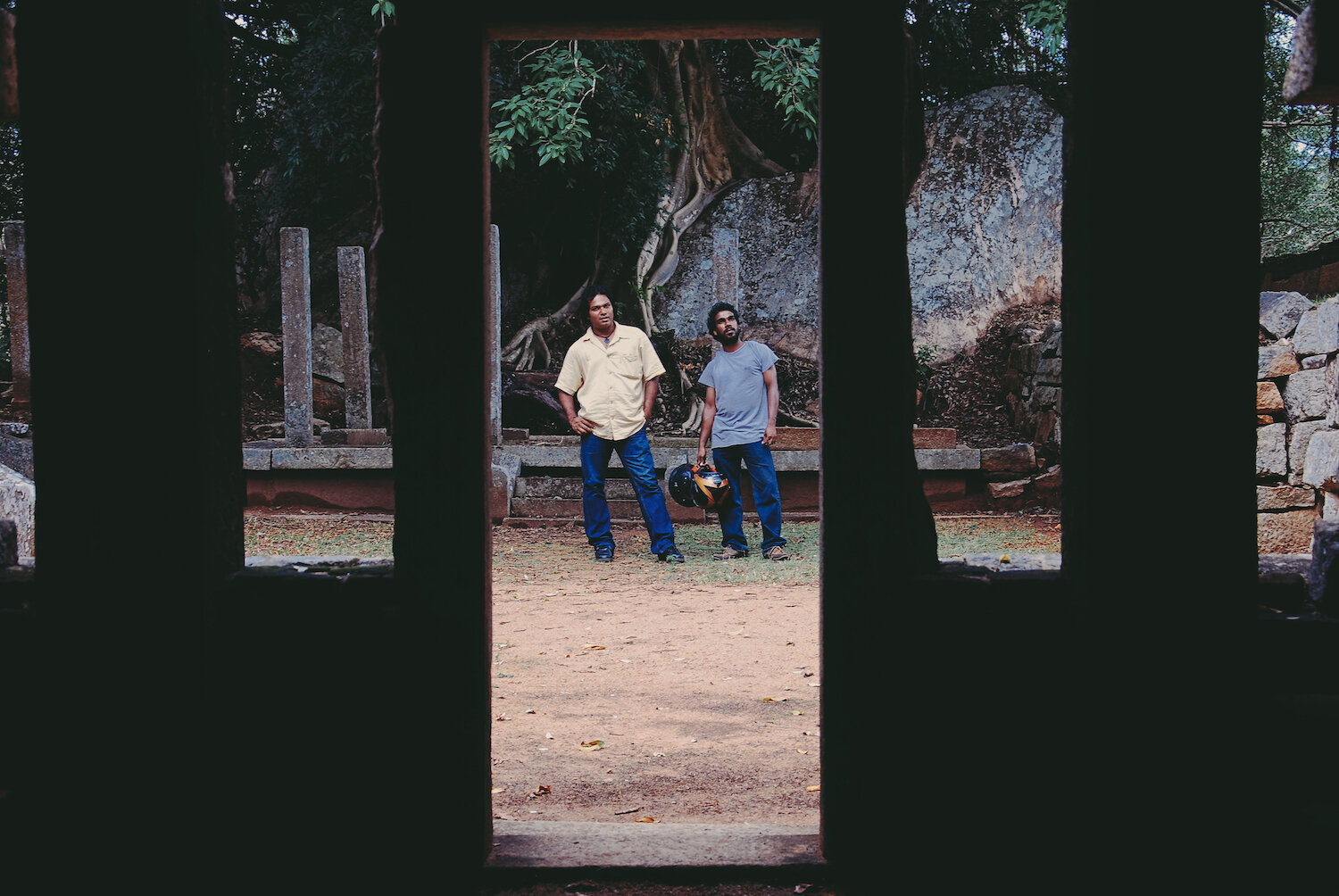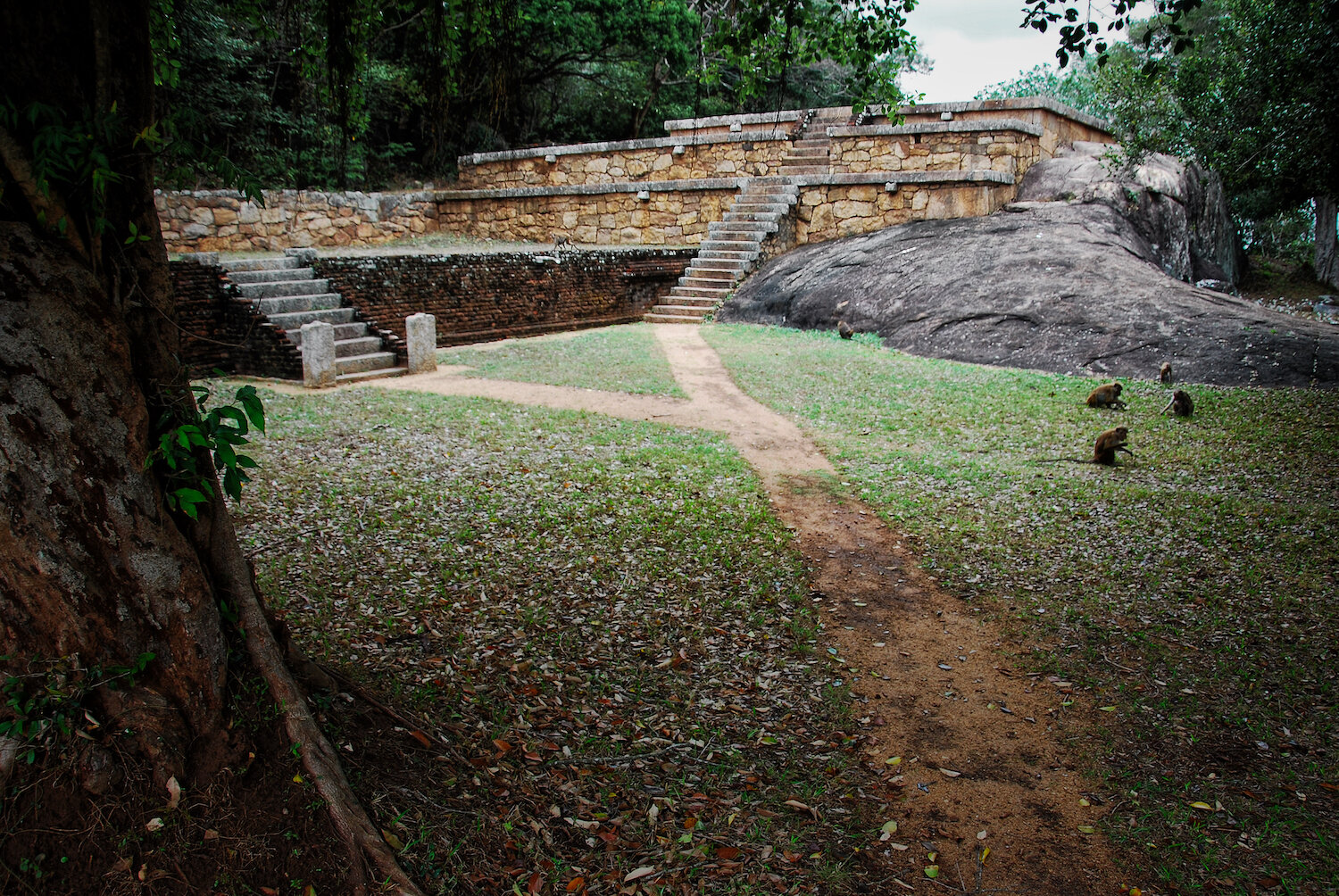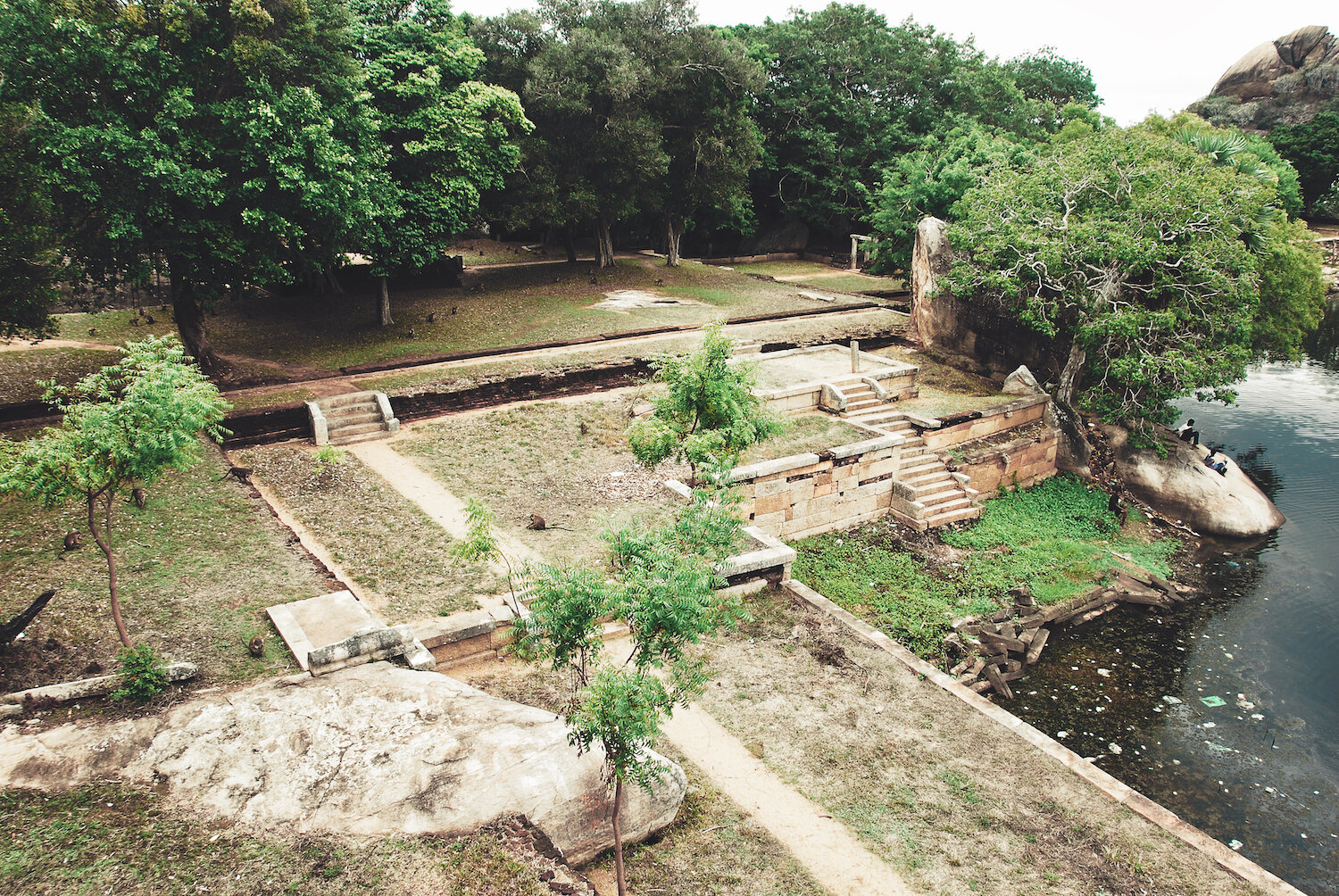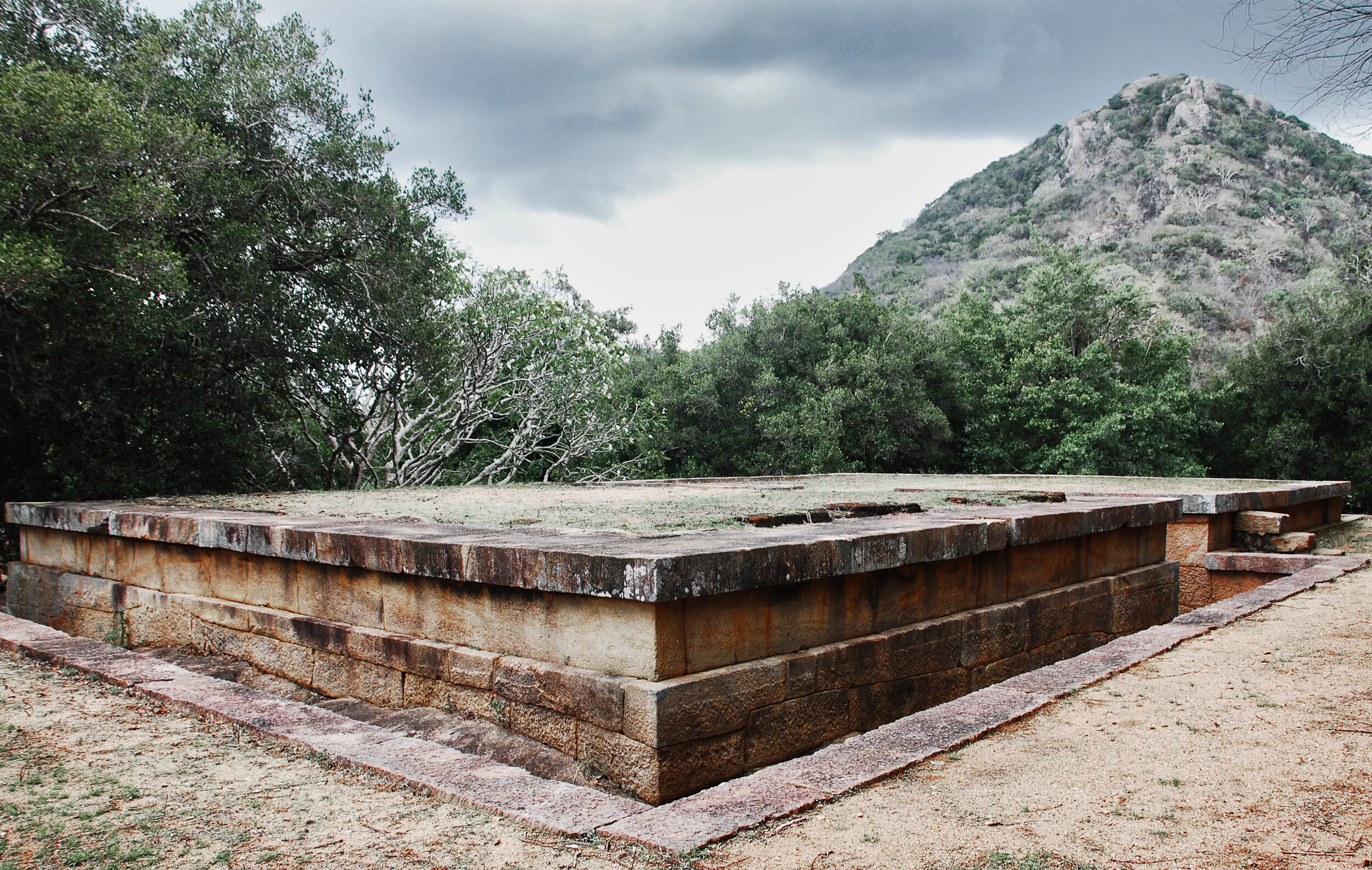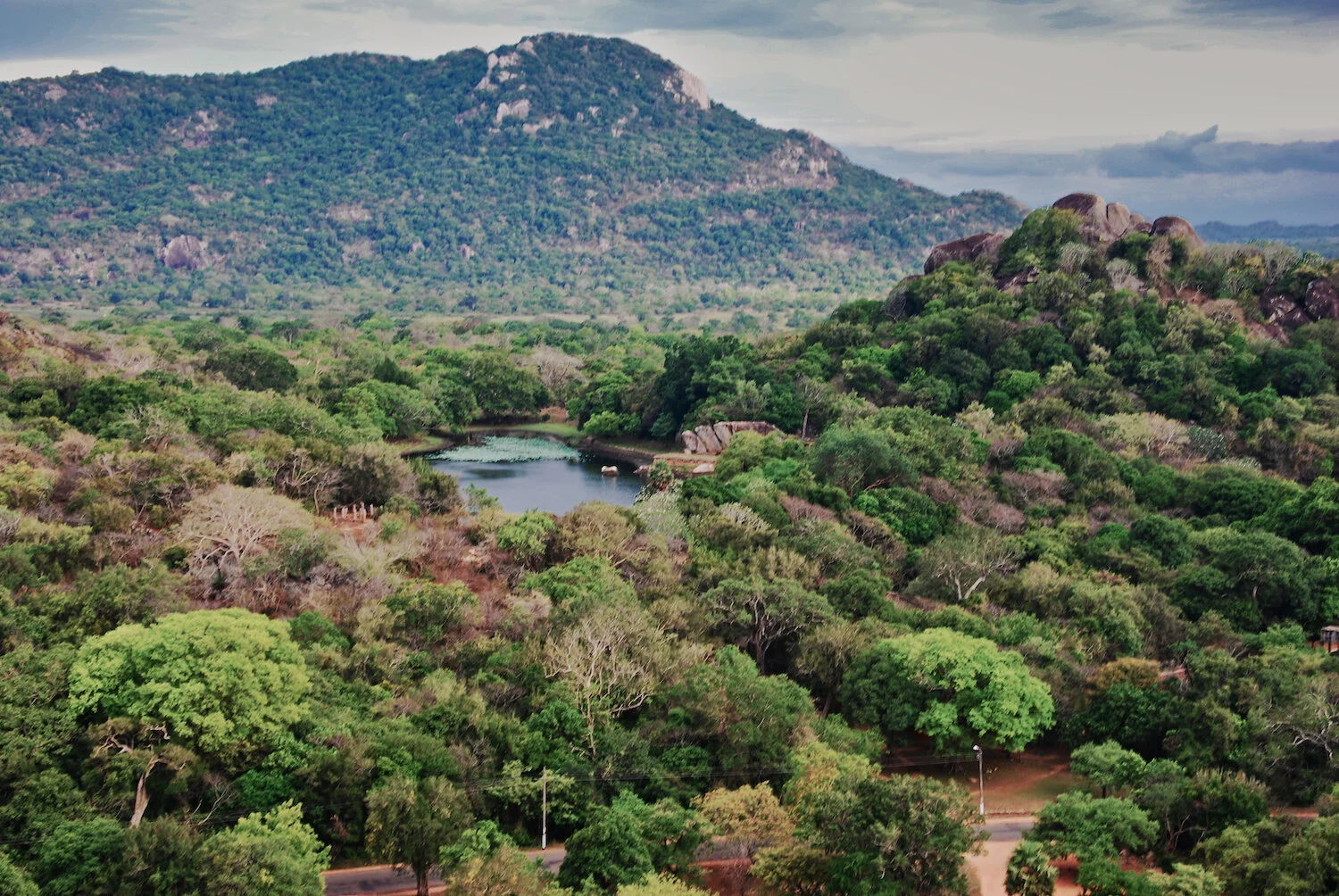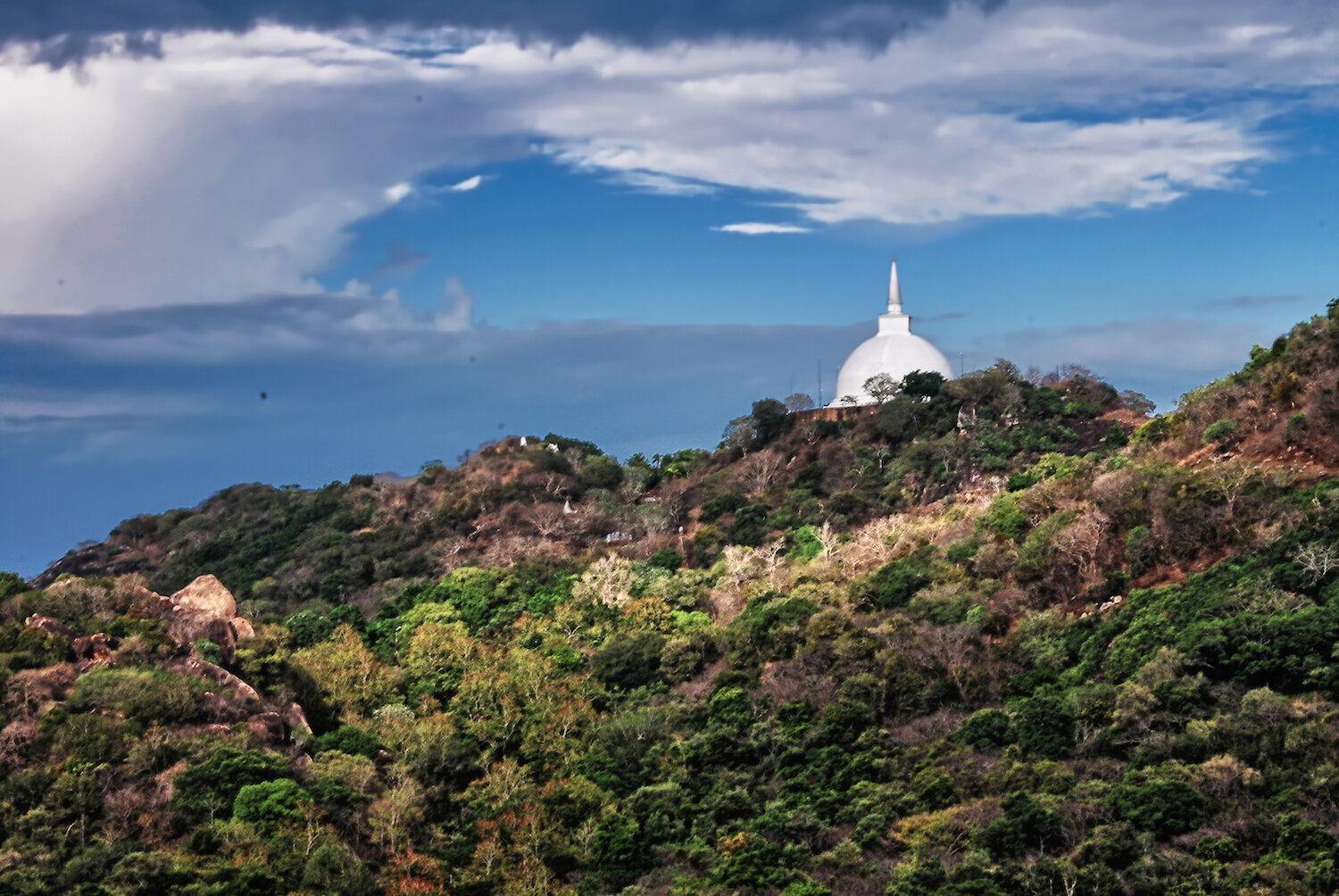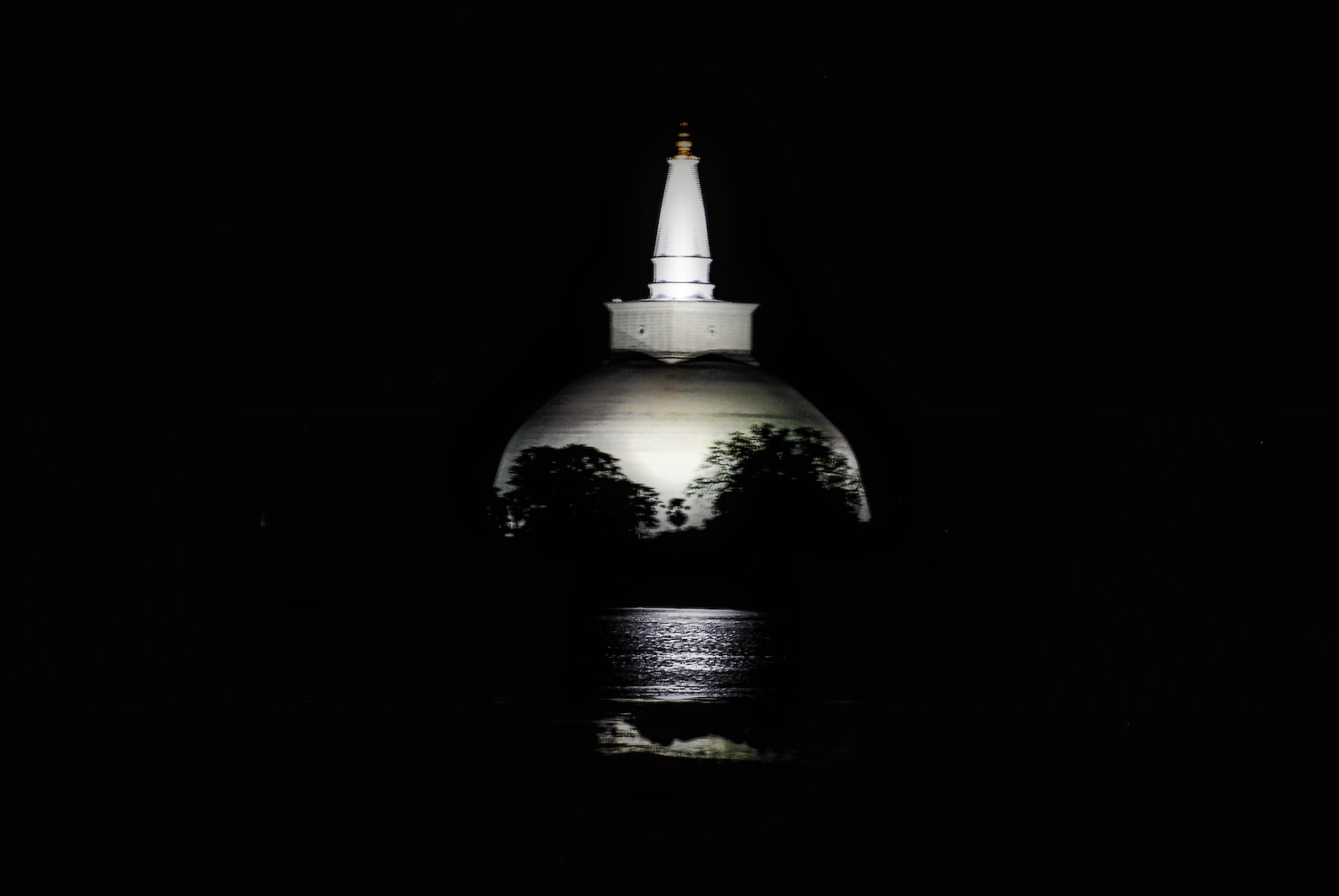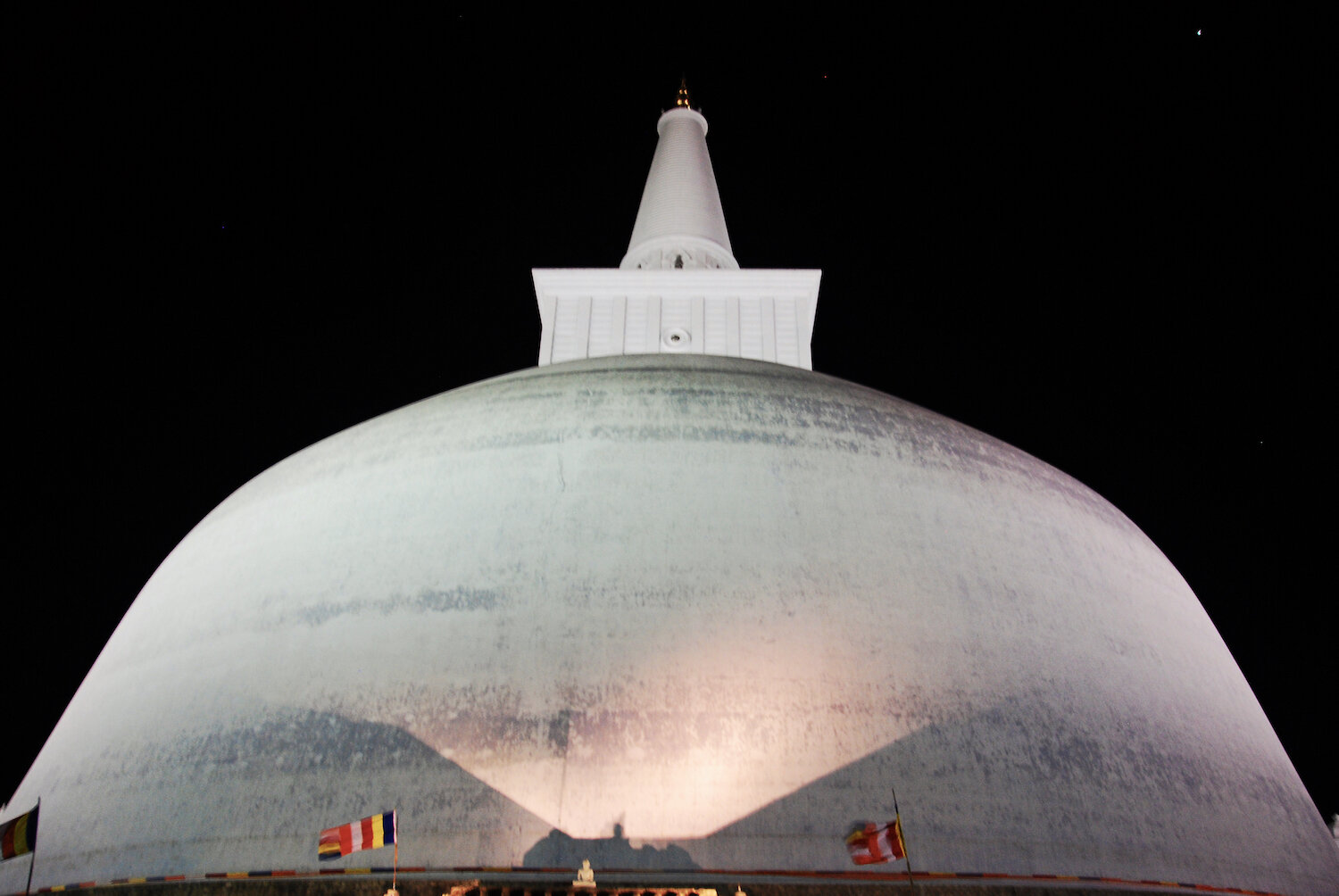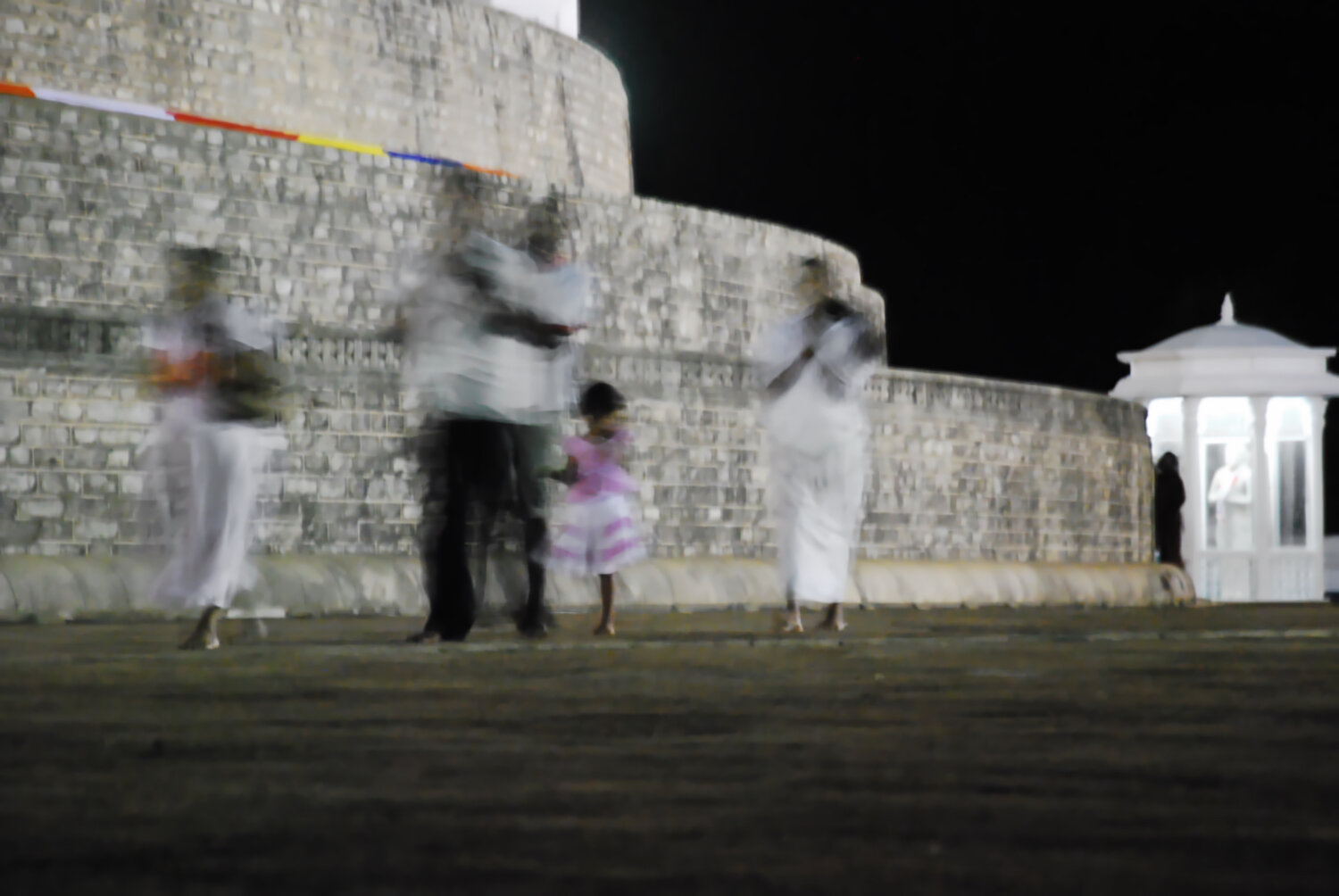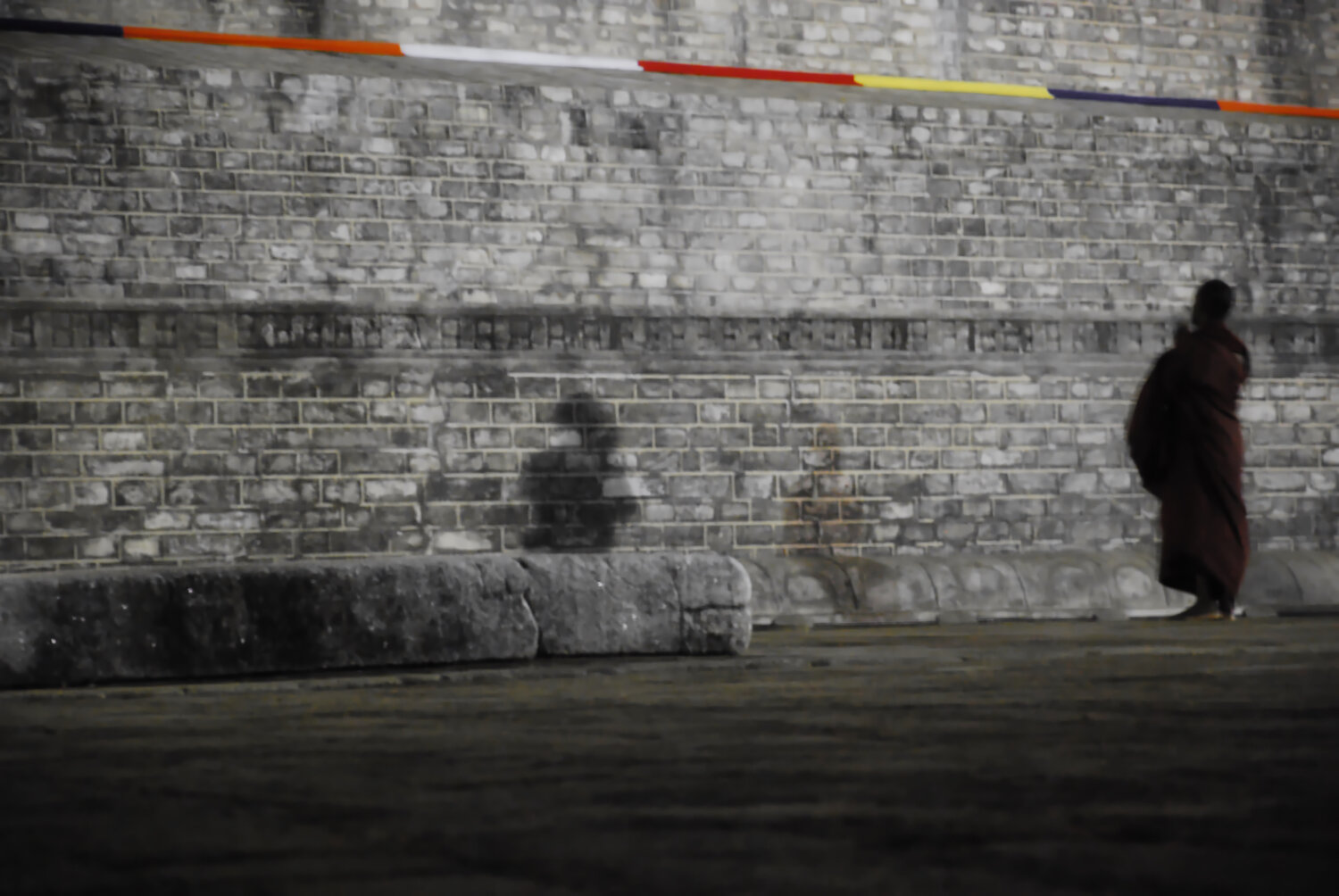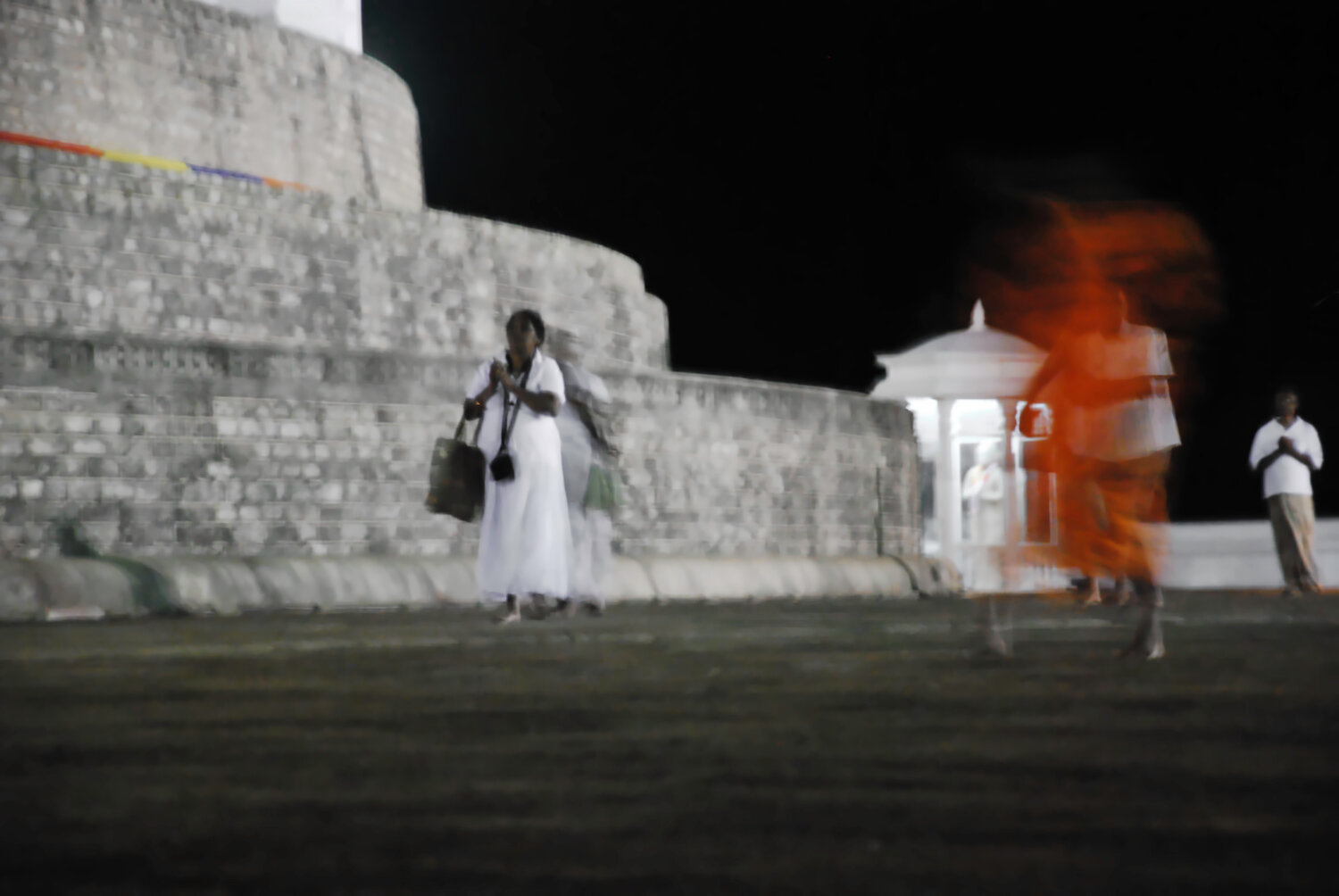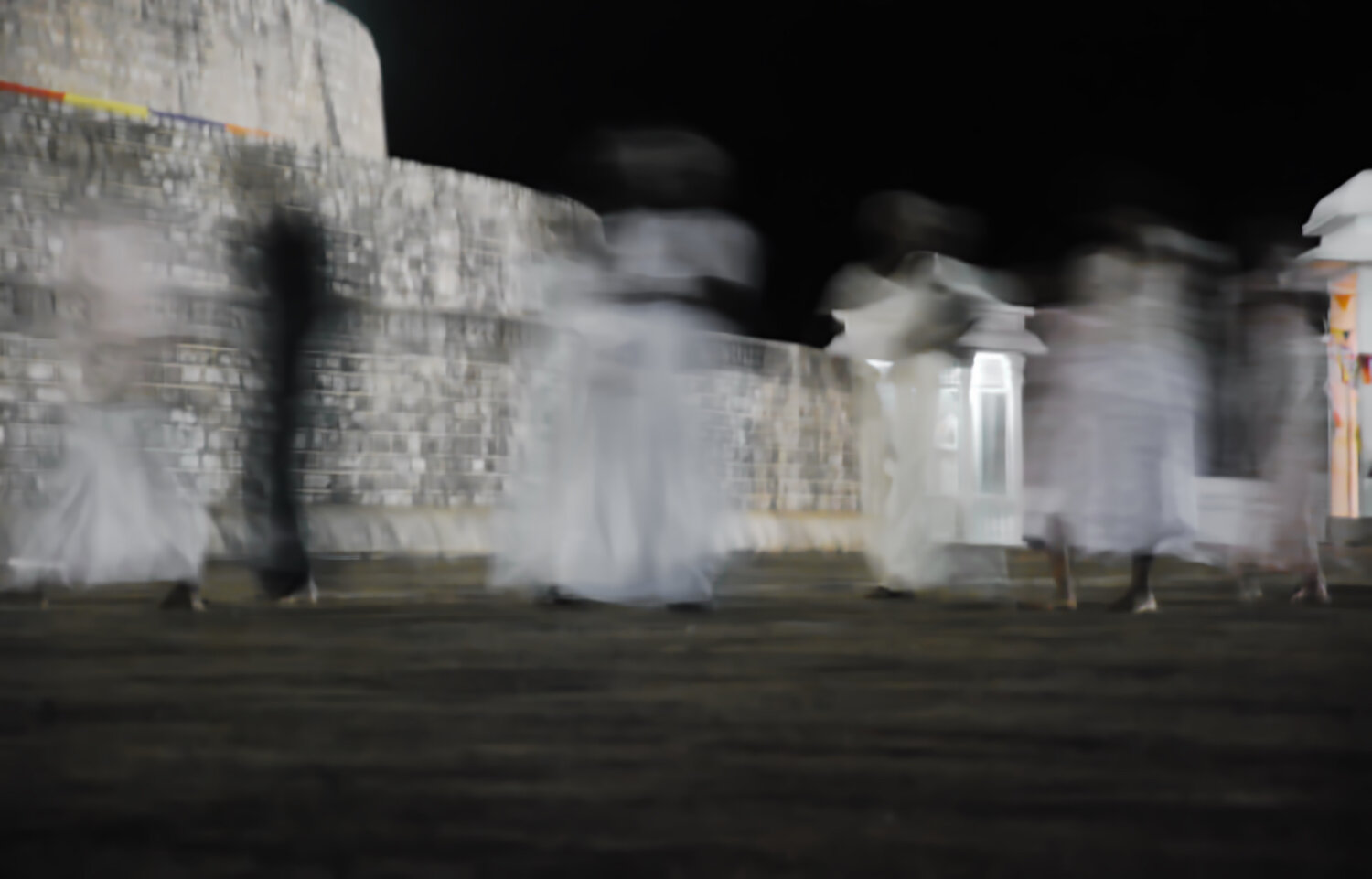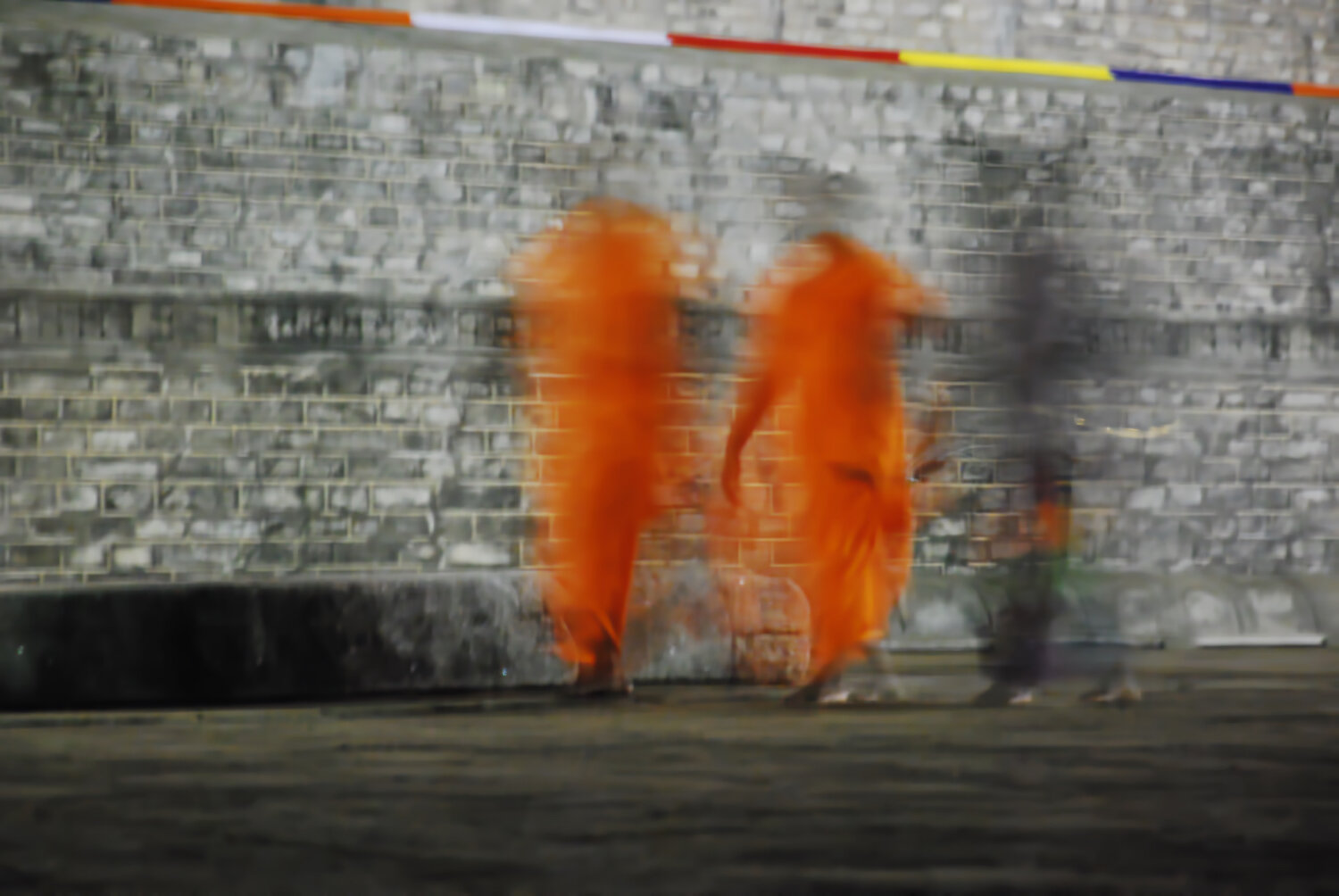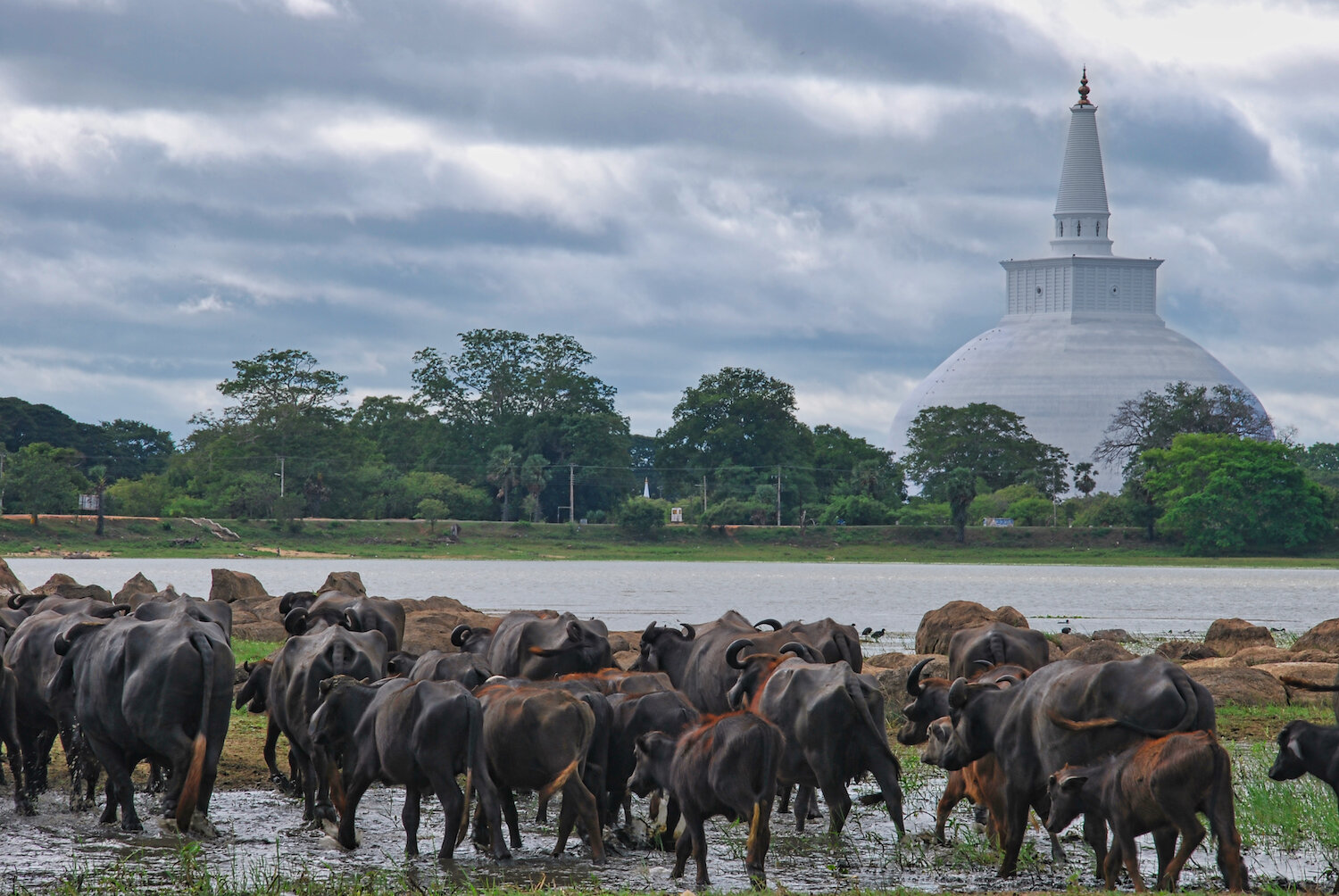72 - Curiosity Quagmire (Anuradhapura, Sri Lanka)
“After dinner, I returned to the Ruwanwelisaya Stupa, this time with my new friends. Honestly, you’d be an asshole not to visit after sundown. Had I not run into Chari and Chandana, I’d have been that asshole. Whatever mystic-spirit vibe I’d sensed during the day intensified at night…”
by Mr. Nos T. O’manaic
PACKED MY SHIT AND HIT THE ROAD. I’d planned to visit a SOI (stupa of interest) but bailed when I realized how far afield it was from my intended route. On my way out of Anuradhapura, I passed the museum where I met Chandana. Though not deliberate, I jumped at the chance to honk “goodbye.” As fate would have it, I spotted both he and Chari trolling for prospective clients. I drove their way for a quick hello/goodbye, but was held up…
… for another day.
When Chari offered to show me ruins near Mihintale, I knew I weren’t going nowheres. He might as well have been Don Corleone with an offer I couldn’t refuse. Chandana decided to play hooky as well, so we adjourned to his house for some pre-temple tea.
Mihintale is famous as the site where King Devanampyiatissa converted to Buddhism courtesy of Mahinda, the son of a great Buddhist emperor. We avoided the popular main temple complex. Instead, Chari showed me an ancient monastery nearby that receives fewer visitors and even fewer western tourists.
And I can’t deny it. I felt something special there, dare I say mystical. It was as if energy pulsated from the ground and the ruins themselves. Would I have experienced this without Chari’s soothing narrations? He explained how ancient Sri Lankans of lore integrated Buddhist principles and mathematics into their structural designs. It was, and is, a place for meditation and contemplation. Monks still live on the grounds. And those who wish it can come and do the same, sequestering themselves for days, weeks, or months in the small cave dwellings used by those seeking enlightenment for over a thousand years.
Let’s just say the facilities adhere to an ascetic ideal. A thin mat on a bed carved of the rock is the sum total of your creature comforts. Design with meditation in mind. Whether it be in your room, on a standing mediation platform nearby, or on the rocks cliffside, if you are a serious practitioner, this place is Nirvana. (Pun most certainly intended.) Anyone may visit and stay free of charge, but (according to Chari) native monks know if you’re really meditating or not, i.e. who’s being naughty (scoring a free room) or nice.
Residents rely on the kindest of locals for sustenance. Pilgrims come from far and wide, staying a day or two to provide food. Otherwise, monks hit the streets and beg for alms. There’s no stigma as everyone knows wisdom seekers require help on the road to enlightenment. Most are more than willing to pitch in.
After half a day spent exploring the hillside monastery, we returned to Chandana’s home for dinner, a hearty meal of Sri Lankan curry. Delicious and filling. I mistakenly believed I wasn’t a fan of curry. Chandana’s wife cured me of that delusion.
Shall I beat a dead horse? I mentioned previously how fortunate I was for the personal invitations. Well, there I was again. On the surface, it might not seem like much, but, practically speaking, it was remarkable. These were not rich people. They lived in a small brick home with Chandana’s mother. He had recently begun a tourist-guide apprenticeship under Chari’s tutelage but times were difficult. The hostilities from a drawn-out civil war had taken a toll on tourism, especially in those recent years when the government intensified its efforts to smash the Tamil Tigers.
They invited me into their home and offered me a bountiful meal. (I was truly stuffed.) This was an act of unadulterated kindness. Fearing I might be taking advantage, I offered to make a contribution, but Chandana would hear none of it and was slightly insulted. He asked if it were common practice in America to offer money to a friend after a meal invitation. Of course, this isn’t so. Case closed.
Beyond the excellent meals, there was the precious time they (Chari and Chandana) spent showing me around while providing explanations and insights regarding the ancient city and Buddhism. This was their trade, and they exchanged it for my friendship. I hate to repeat myself (or do I?) but gratitude warms cockles even now as I write this.
I cannot emphasize enough how difficult making a connection like this can be in the developing world. Educational opportunities, socio-economic status, and cultural differences can all work against having a genuine friendship. They expected nothing from me. Their intellects and innate curiosity rivaled that of anyone I’ve ever been lucky enough to call “friend.” I don’t mean to imply either I or my cohort of miscreants back home were geniuses but finding a true intellectual connection on the level I did among those ancient ruins was rare.
I’ve already mentioned how Chari taught himself French. His influence rubbed off on Chandana, big time. Eight months earlier, Chandana barely spoke a word of English. Eight months? For reals? Eight months later we were discussing philosophy and politics. I call that hustle. Chari told him if he wanted to be a legitimate guide, he would have to learn English and a ton of historical information about Sri Lanka. He answered the call, and then some. Hustle.
I came to know more details of the Hollywood-esque story of Chandana and his wife. She was from the Kandy area of Sri Lanka, borne of wealth and privilege. Chandana was from the other side of the tracks, so to speak. His wife’s parents (I’m ashamed to admit I can’t recall her name hence the limitless “she’s”, “her’s”, and “his wife’s”) had her future preordained, at least in the spouse department. She wanted no part of their plan, having witnessed the abject unhappiness experienced by her older sisters. She was in love with the “wrong” man, but she was in love. And that’s what mattered.
I neglected to ask where they met, but I know Chandana made multiple attempts to “kidnap” his true love. Police thwarted two escape attempts. (Not sure exactly how or why the police held them. Political influence? Probably.) Parents were notified. Hopes were dashed. The key was to escape Kandy province and the gravitational pull of her parent’s influence. Third time’s a charm. They made their escape, but that was the “easy” part.
Chandana was not a wealthy man, and his wife was accustomed to privilege. She had to adjust. It wasn’t going well. Her upbringing shielded her from many of the mundane domestic tasks that are part and parcel of a more plebeian existence. Her parents refused to help, refused to speak to them. She gave up the family she loved and a life of monetary ease to be with the man she loved. She had to live with the consequences. Divorce in Sri Lanka is a complicated process (intentionally so) and chastity is paramount to would-be husbands. Even if mom and pop welcomed her home, she’d been “tainted” by Chandana. A “respectable” man wouldn’t be interested.
I found the uneasy truce between sadness and joy an excellent metaphor for life. Yin. Yang. Can’t have one without the other. Maybe you wouldn’t want to. Eleven months after their elopement, they appeared to be happy, hardships and all. I had no doubt Chandana would make something of himself as he possessed all the intrinsic tools of success. I found it tragic her parents refused even to meet him, refused to believe he was worth considering. The romantic idealist in me believed his generous heart and sincerity would’ve melted the ice if given the opportunity.
After dinner, I returned to the Ruwanwelisaya Stupa, this time with my new friends. Honestly, you’d be an asshole not to visit after sundown. Had I not run into Chari and Chandana, I’d have been that asshole. Whatever mystic-spirit vibe I’d sensed during the day intensified at night. Having Chari there to clarify details certainly helped. The stupa is built upon scared ground believed to be a conduit for cosmic energy. There’s a crystal atop the pinnacle specifically designed for capturing such energy. (One reason folks travel so far.)
Do I buy into it? Not necessarily, but that’s irrelevant. It’s there or it isn’t. My belief, or lack thereof, matters not. And I didn’t need to believe anything to experience the palpable sense of calm and well-being from being there. We laid in the stone courtyard surrounding the stupa and set our minds free for a few moments. A truly rewarding experience. The stupa is open twenty-four hours. Tourists and pilgrims alike are welcome to sleep there. Many folks do that to harness the place’s therapeutic benefits, especially those advanced in years. Had I more time, I guarantee I would’ve rolled out my sleeping bag for a stupa bivouac.
The next morning, I went for a drive along the earthen reservoirs (know as ‘tanks’) outlining the area. From one such tank, you can see three of the major stupas. My friends brought me there the night before, but I desired a peek a la morning light. It was sublime. I drove into the tank and, amid a pleasant breeze, snapped a few photos. I lingered a while. Standing. Absorbing. Taking it in… Magnificent.
Pre-departure, I stopped in at Chandana’s one last time for a short chat and some more curry. At the risk of stating the obvious, I really, really didn’t want to leave. Damn that one month visa. Still, looking back, there were worse ways to spend a month had I lingered. Perhaps, I made a mistake. Perhaps. My wanderlust overpowered me, and they needed to get back to work. I knew there was much to see in the Sri. (Thankfully, I would see Chandana once more.) With a weighted heart, I bid a fond farewell.
Dost thou believeth in Fate? I’m a definite “maybe” though my definition is more in line with the Stoic logos "rigidly deterministic single whole" sort of deal. If I hadn’t lost my motorcycle key, Chandana never would’ve come to my aid. Never would’ve met him or Chari. If I hadn’t unintentionally passed the museum, I wouldn’t have encountered my friends again and would’ve missed a wonderful experience (i.e. Mihintale, Ruwanwelisaya by night, and a host of deeper historical and cultural insights). Now that would’ve been a tragedy. Anuradhapura touched me in a way I have trouble describing. It was rare and special. I will treasure it always. It’s why I did what I did (i.e. set out without a plan, sabotaged my “career”, alienated close friends, so on and so forth), and it provided fuel for further exploration.


